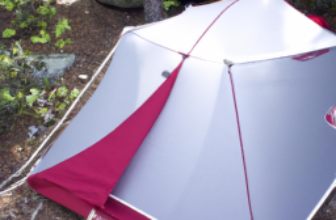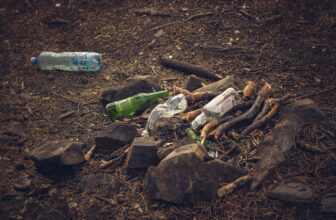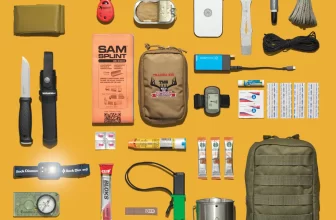Are you planning a hiking adventure and wondering what foods to bring along that will provide you with enough energy? Well, you’re in luck! In this article, we’ll be discussing high-calorie foods that are perfect for fueling your hiking adventures. So, if you’re ready to learn about some delicious and nutritious options, keep reading!
When it comes to hiking, it’s important to choose foods that will give you a sustained energy boost. One great option is nuts and trail mix. Packed with healthy fats and protein, nuts are a fantastic source of calories that will keep you going on those long hikes. You can customize your own trail mix by adding in dried fruits and dark chocolate for a touch of sweetness.
Another high-calorie food that is perfect for hiking is jerky. Whether it’s beef, turkey, or even vegan alternatives like tofu or seitan, jerky is a convenient and protein-packed snack that won’t weigh you down. Plus, it’s shelf-stable and easy to pack, making it an ideal choice for longer hikes.
One more food item that can provide you with a burst of energy on the trail is peanut butter. Not only is it delicious, but it’s also loaded with healthy fats and protein. You can spread it on whole-grain crackers, or even enjoy it straight from the jar for a quick pick-me-up. Just be mindful of portion sizes, as peanut butter can be quite calorie-dense.
So, whether you’re planning a day hike or a multi-day adventure, these high-calorie foods will keep you fueled and ready to conquer any trail. Don’t forget to pack some water and stay hydrated, and be sure to check out our article for more tips on fueling your hiking adventure!”
Benefits of High-Calorie Foods for Hiking
When heading out on a hiking adventure, it’s important to fuel your body with the right foods to ensure you have the energy and endurance to tackle those trails. High-calorie foods can provide the sustained energy levels and muscle fuel needed for hiking, while also aiding in weight management and improved endurance.
Sustained Energy Levels
One of the key benefits of high-calorie foods for hiking is the sustained energy they provide. Hiking can be physically demanding, and your body needs a continuous source of energy to keep you going. High-calorie foods such as nuts, seeds, and energy bars are packed with healthy fats and carbohydrates that can provide a steady release of energy throughout your hike. This can help you maintain a consistent pace and prevent fatigue.
Muscle Fuel and Recovery
Hiking requires the use of multiple muscle groups, and it’s important to fuel these muscles properly for optimal performance and recovery. High-calorie foods such as cheese and crackers provide a good balance of protein, carbohydrates, and fats, which can help fuel your muscles and aid in their recovery. This can reduce the risk of muscle fatigue, soreness, and injury, allowing you to hike longer and more comfortably.
Weight Management
Contrary to popular belief, high-calorie foods can actually aid in weight management when consumed in the right quantities and proportions. When hiking, your body requires more calories to sustain its energy levels and support its activity. Consuming high-calorie foods can provide you with the necessary calories to fuel your hike, while also preventing excessive weight loss. It’s important to note that portion control is key, and it’s essential to balance high-calorie foods with other nutritious options to maintain a healthy diet.
Improved Endurance
High-calorie foods can also help improve your hiking endurance. When you consume foods that are high in calories, you provide your body with the necessary fuel to perform at its best. This can result in increased stamina and the ability to hike longer distances without feeling fatigued. By incorporating high-calorie foods into your hiking diet, you can push your limits and explore new trails without feeling limited by your energy levels.
Popular High-Calorie Foods for Hiking
Now that we’ve discussed the benefits of high-calorie foods for hiking, let’s explore some popular food options that will provide you with the necessary calories and nutrients for your hiking adventure.
Nuts and Seeds
Nuts and seeds are excellent high-calorie options for hiking. Not only are they packed with healthy fats and proteins, but they are also lightweight and easy to pack. Almonds, peanuts, cashews, and sunflower seeds are all great choices that provide a good amount of calories and essential nutrients.
Dried Fruits
Dried fruits are another great choice for high-calorie snacks on the trail. They are lightweight, easy to carry, and provide a concentrated source of natural sugars and carbohydrates. Raisins, apricots, dates, and cranberries are all delicious options that can provide you with a quick energy boost during your hike.
Energy Bars
Energy bars are a convenient and quick source of high-calorie nutrition. They are specifically designed to provide a balanced mix of carbohydrates, proteins, and fats, making them an ideal snack for hiking. Look for bars that are made with natural ingredients and avoid those with excessive amounts of added sugars.
Cheese and Crackers
Cheese and crackers are not only a delicious combination but also a great high-calorie option for hiking. Cheese is rich in protein, fats, and calcium, while crackers provide a good source of carbohydrates. This pairing can provide you with sustained energy and keep you feeling full for longer periods.
Preparation and Storage of High-Calorie Foods
Once you’ve chosen the high-calorie foods that are suitable for your hiking adventure, it’s important to consider their preparation and storage to ensure their freshness and safety.
Packaging Considerations
When packing high-calorie foods for hiking, it’s important to choose packaging that is lightweight, durable, and easily accessible. Invest in resealable bags, lightweight containers, and compact lunchboxes that can keep your food fresh and prevent any spills or leaks.
Proper Storage Techniques
To ensure the quality and safety of high-calorie foods during your hike, it’s important to store them properly. Avoid storing them in direct sunlight or high temperatures as it can compromise their freshness and nutritional value. Instead, pack them in an insulated cooler or use ice packs to keep them cool.
Meal Planning for Extended Trips
If you’re planning an extended hiking trip, it’s important to carefully plan your meals to ensure you have enough high-calorie foods to sustain you throughout your adventure. Consider creating a meal plan and packing foods that are easy to prepare, lightweight, and provide the necessary nutritional value. Dehydrated meals, homemade energy bars, and trail mix variations can be excellent options for such trips.
Nutritional Considerations for Hiking
When it comes to hiking, it’s not just about the number of calories you consume but also the quality and variety of nutrients. Here are some nutritional considerations to keep in mind while choosing high-calorie foods for hiking.
Macro and Micro Nutrients
When selecting high-calorie foods for hiking, aim for a balance of macronutrients (carbohydrates, proteins, and fats) and micronutrients (vitamins and minerals). Ensure that your food choices provide you with a diverse range of nutrients to support your overall health and wellbeing during your hike.
Hydration and Electrolytes
Hydration is crucial when hiking, and it’s important to choose high-calorie foods that can help replenish your body’s fluid and electrolyte balance. Opt for foods that are high in water content, such as fruits and vegetables, and consider adding electrolyte-rich options like sports drinks or electrolyte tablets to your hiking pack.
Dietary Restrictions
If you have specific dietary restrictions or allergies, it’s essential to choose high-calorie foods that align with your needs. Many high-calorie options are suitable for a variety of dietary preferences, including vegetarian, vegan, gluten-free, or dairy-free. Be sure to read labels and choose options that meet your dietary requirements.
Recipes and Meal Ideas for Hiking
Now that we’ve discussed the benefits, popular options, and nutritional considerations of high-calorie foods for hiking, let’s explore some recipes and meal ideas that you can incorporate into your hiking adventure.
Trail Mix Variations
Trail mix is a classic hiking snack that can be easily customized to suit your taste preferences and nutritional needs. Combine a mix of nuts, dried fruits, seeds, and even some dark chocolate for an indulgent treat. Experiment with different combinations and portion sizes to create your perfect trail mix.
Homemade Energy Bars
Making your own energy bars at home allows you to control the ingredients and nutritional content. Mix together oats, nuts, dried fruits, and a binder such as honey or nut butter, and bake them into delicious bars that can be enjoyed on the go. You can also add extras like chia seeds or protein powder for an added boost of nutrition.
Dehydrated Meal Options
For longer hiking trips, dehydrated meals are a convenient and lightweight option. You can prepare your own dehydrated meals by cooking and dehydrating foods like rice, pasta, and vegetables. Pack them in resealable bags and simply rehydrate them with hot water when it’s time for a meal. This allows you to enjoy a warm and filling meal even when you’re in the middle of nature.
Portable Snack Ideas
If you’re looking for quick and easy snacks for your hike, consider portable options like cheese sticks, beef jerky, or single-serving nut butter packets. These snacks require little to no preparation and can provide you with a quick source of energy and nutrition while on the trail.
Additional Tips for Choosing High-Calorie Foods
While high-calorie foods can be beneficial for hiking, it’s important to choose them wisely. Keep the following tips in mind when selecting high-calorie foods for your hiking adventure.
Focus on Nutrient Density
Choose high-calorie foods that are nutrient-dense, meaning they provide a high amount of essential vitamins and minerals in addition to calories. This will ensure that you get the necessary nourishment to keep your body functioning optimally during your hike.
Consider Weight and Volume
When hiking, weight and volume of your food are important factors to consider. Choose high-calorie foods that are lightweight and take up minimal space in your backpack. This will allow you to carry enough food without weighing you down or taking up valuable space.
Allergen Considerations
If you have allergies or food sensitivities, be mindful of the ingredients in the high-calorie foods you choose. Read labels carefully and opt for options that are free of allergens or alternative options that are suitable for your dietary needs.
Personal Preference
Lastly, consider your personal preferences when selecting high-calorie foods for hiking. Choose foods that you enjoy eating, as this will make your hiking experience more enjoyable. Experiment with different flavors and textures to find the high-calorie foods that suit your taste buds.
Health Risks of High-Calorie Foods for Hiking
While high-calorie foods can be beneficial for hiking, it’s important to be aware of the potential health risks associated with their consumption.
Overconsumption and Weight Gain
Consuming too many high-calorie foods without balancing them with other nutritious options can lead to overconsumption and weight gain. It’s important to maintain a balanced diet and portion control, ensuring that high-calorie foods are just a part of your overall nutritional intake during your hiking trip.
Digestive Issues
Some high-calorie foods, particularly those high in fats and fibers, can cause digestive issues for some individuals. It’s important to listen to your body and choose foods that you know you can tolerate well during your hike. Experiment with different options during your training hikes to determine which foods work best for you.
Unbalanced Nutrition
Relying solely on high-calorie foods for your nutrition during a hike can lead to unbalanced nutrition. It’s important to incorporate a variety of other nutrient-dense foods into your diet to ensure you’re getting a wide range of essential nutrients.
Impact of Environment on High-Calorie Food Choices
Different hiking environments can have an impact on the types of high-calorie foods you choose to fuel your adventure. Consider the following factors when making your food choices.
Hot Weather Considerations
In hot weather, it’s important to choose high-calorie foods that can withstand the heat and won’t spoil easily. Opt for foods that are heat stable and won’t melt or get mushy. Freeze-dried fruits and vegetables, energy bars, and nuts are all great options for hot weather hiking.
Cold Weather Considerations
In cold weather, your body requires additional calories to stay warm. Choose high-calorie foods that provide a good amount of fats and proteins, as these can help keep your body temperature regulated. Opt for warm and nourishing options like dehydrated soups, nuts, and nut butters.
High Altitude Factors
At higher altitudes, your body requires more calories to compensate for the increased energy expenditure. Choose high-calorie foods that provide a good mix of protein, carbohydrates, and fats to keep your energy levels stable at higher altitudes. Include foods with a higher salt content to help retain water and prevent dehydration.
Training and Preparation for Hiking
In addition to fueling your body with high-calorie foods, it’s important to undergo proper training and preparation for hiking to ensure a safe and enjoyable experience.
Physical Conditioning
Hiking can be physically demanding, especially if you’re tackling challenging terrain or carrying a heavy backpack. Prioritize strength training, cardiovascular exercises, and hiking-specific workouts to prepare your body for the demands of hiking.
Appropriate Gear and Equipment
Invest in proper hiking gear and equipment to ensure your safety and comfort on the trails. Good quality hiking boots, moisture-wicking clothing, a sturdy backpack, and navigation tools are essential items to have. Also, pack essentials like a first aid kit, sunscreen, bug repellent, and a portable water filtration system.
Mental Preparation
Hiking requires mental resilience as much as physical endurance. Prepare yourself mentally by researching the trails, understanding their difficulty levels, and setting achievable goals for your hike. Practice mindfulness and positivity to overcome any challenges you may face along the way.
Conclusion
Choosing the right high-calorie foods for your hiking adventure is crucial to ensure you have the energy, stamina, and endurance needed to conquer those trails. With proper planning, preparation, and thoughtful consideration of your nutritional needs, you can enjoy the many benefits that high-calorie foods provide while exploring the great outdoors. So pack your bags, fuel your body, and embark on an unforgettable hiking experience!








